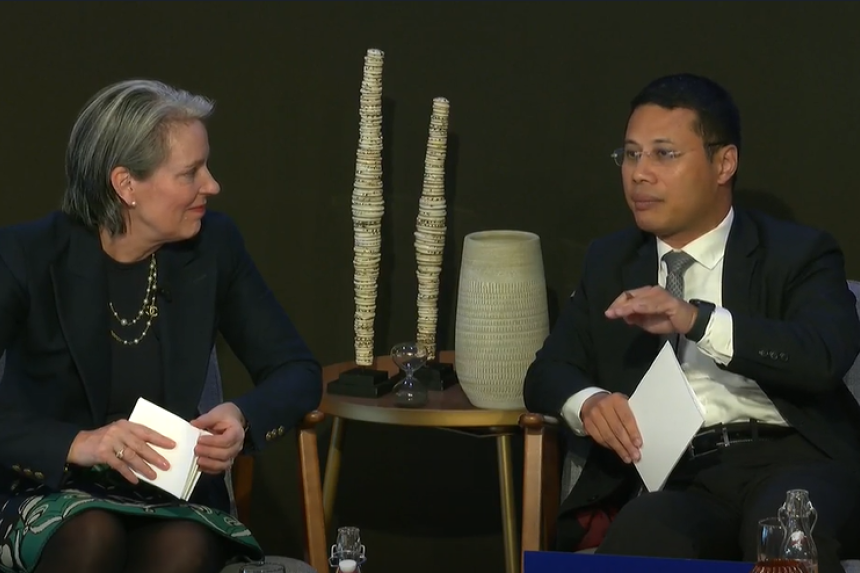DAVOS – Singapore will look at how it can better partner the private sector to help seniors plan for their retirement, said National Development Minister Desmond Lee.
In an interview with the Singapore media on Thursday to wrap up his visit to the World Economic Forum (WEF) in Davos, Mr Lee said the challenge of ageing societies was raised during several panel discussions, including one with panellists from the private sector who were helping people in their countries gain financial literacy for retirement planning.
“So it kind of got us to think about how we, in turn, can do better, not just among government agencies and with the community, but also with the private sector, to help systematically empower our seniors to look at all the options and alternatives and plans for them to have peace of mind as they retire,” added Mr Lee, who is also Minister-in-charge of Social Services Integration.
He said moving forward, the key is to tap local banks and financial institutions in a way that gives older people in Singapore more confidence to not only navigate financial products, but also the government policies and schemes available to them.
In terms of government schemes, the minister cited the lease buyback scheme, which allows elderly flat owners to sell part of their lease to the Government so that they have more money for retirement. As at November 2022, some 9,200 households had opted for the scheme since it was introduced in March 2009.
Mr Lee, who attended various meetings with businesses, government leaders and non-governmental organisations (NGOs) during his first visit to the forum, said there was a sense of “guarded optimism” in Davos as the world emerges from the Covid-19 pandemic. Singapore was also represented by Minister for Communications and Information Josephine Teo and Senior Minister Tharman Shanmugaratnam.
But concerns remain over the state of the global economy, as well as the cost-of-living crisis, high interest-rate environment affecting businesses, uncertainty over China’s reopening, and the impact of the ongoing war in Ukraine, Mr Lee added.
He said one key issue on the agenda was how to invest in building up resilience against the “next big shock”.
“Business leaders, of course, are concerned about what they have just gone through, in terms of supply chain, manufacturing base disruptions, the impact of what might be a turn away from globalisation and free trade,” Mr Lee said.
The climate crisis also featured prominently at the WEF, and Mr Lee said he was encouraged that in many of the discussions, “there was concern about what governments need to do better, how can we work better with the private sector, in order to reach net zero”.
Singapore, on its part, has pledged to reach net-zero greenhouse gas emissions by 2050.
Mr Lee noted that while Singapore is a small city-state, it is very open and plugged into the world economy.
“And so we need to be present at these kinds of forums to, firstly, get a feel of the pulse of the global economy, understand what global and national leaders are thinking about, understand business leaders’ concerns, and the ideas that they have, their plans,” he said.
“Also, listen to NGOs, who are pushing on climate, pushing on social equity, pushing on conservation, pushing on the rights of vulnerable people and communities.”
Singapore wants to be a useful part of the global community and share its ideas and experiences, Mr Lee said.
At the same time, the WEF is “also a wonderful place for us to learn from many people around the world”, to get the best ideas to strengthen Singapore, he said.


